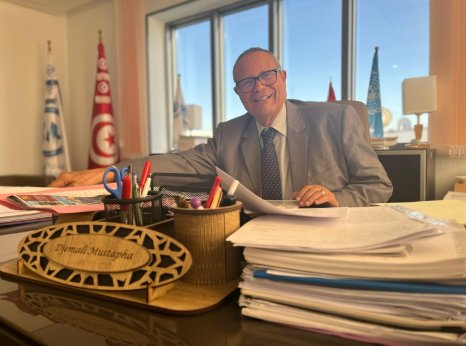Tunisia: Human Rights Defenders Unjustly Held

In early May 2024, the Tunisian government launched a clampdown against refugees and migrants and civil society organizations defending their rights. On 6 May, in public remarks, President Kais Saied attacked organizations working on migration, accusing them of seeking the "settlement” of migrants and describing them as “traitors” and “[foreign] agents”. He stated: “There are networks inside who are connected to networks abroad... Financial transfers are received by… those who falsely claim that they are protecting [migrants], an association, you all know how they posted a tender to shelter these Africans... who are residing [in Tunisia] illegally.”
On 7 May, a Tunis prosecutor announced the opening of an investigation against associations for “abusing their mandate to provide financial support” to irregular migrants. Authorities have since summoned, arrested and investigated the heads, former staff or members of at least 15 organizations. 10 human rights defenders, NGO staff and former local municipality staff who worked with them are in arbitrary pre-trial detention for accusations of supporting irregular migrants or of financial crimes relating to legitimate NGO funding. That same month, the authorities conducted forced evictions of refugees and migrants and convicted landlords for renting apartments to irregular migrants. This crackdown represented one of the latest escalations within a wider deterioration of refugee and migrant rights since February 2023, marked by racially discriminatory practices and language. This pattern of criminalization of refugee and migrant rights defenders has also been documented in Europe and beyond.
The Tunisian Council for Refugees (CTR), a Tunisian NGO founded in 2016, which worked with the UNHCR and Tunisian authorities to pre-register asylum seekers and provide essential assistance to vulnerable refugees and asylum seekers, was among the first organizations targeted. Its founder Mustapha Djemali is a former high-level UNHCR official. On 2 May 2024, in line with local compliance requirements and as part of their regular activities, the CTR published a tender for hotels to shelter asylum seekers and refugees in precarious situations, following a request for assistance from the UNHCR and the region of Sfax. Following its publication, Tunisian media outlets and social media accounts shared screenshots of the tender claiming that civil society was conspiring for the “settlement” of “Africans” or “illegal migrants” in Tunisia, often using xenophobic and racist language. On 3 May, the police raided the CTR office in Tunis, arrested its director Mustapha Djemali and placed him in custody. On 4 May, the police arrested and placed Abderrazek Krimi, project manager at the CTR, in custody. Police officials interrogated the two HRDs about the CTR’s funding, the activities of the organization with regards to irregular migrants, and the call for tenders.
On 7 May, an investigating judge at the Tunis Court of First Instance ordered their pre-trial detention for six months pending investigation for “forming an alliance or an organization” in order to “plan, facilitate, assist, mediate, or organize by any means, even without profit, the clandestine entry of a person into Tunisian territory” and “providing them with shelter” based on Articles 38, 39 and 41 of Law 40 of 1975 relating to Passports and Travel Documents. These charges lacking legal clarity fail to include elements of financial or material gain or exploitation which characterize human smuggling and trafficking and do not exempt human rights and humanitarian support, as required by the UN Convention on Transnational Organized Crime and its Trafficking and Smuggling Protocols.
The judge renewed their detention for four months in October 2024 and in February 2025. Under Tunisian law, it cannot be renewed a third time. The judge has rejected at least four of their lawyer’s requests for conditional release. He froze both their bank accounts and the account of the CTR pending investigation. On 18 March 2025, an expert report mandated by the judge to investigate their personal bank accounts and the account of the CTR was submitted to the court; it did not identify any irregularities. On 25 March, the judge stated during an investigation hearing session “You brought Black people into Tunisia illegally and you feed and shelter them, Tunisian history and laws will make you pay for it,” raising concerns as to his impartiality and the defendants’ right to a fair trial.
Mustapha Djemali, 80, suffers from Horton’s disease which requires medication without which he risks health complications. Since September 2024, prison authorities have failed to provide him with his medication despite multiple requests and have not allowed his family to bring him the medication. They have also failed to allow his family to repair his broken reading glasses. Since the start of his detention, prison authorities have failed to provide Abderrazek Krimi with a medical prescription he requires.